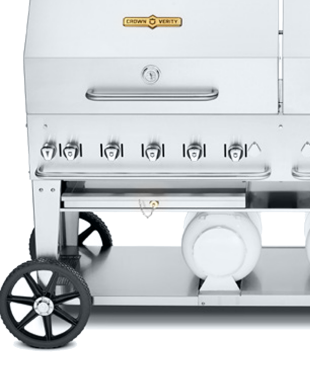15 Steps To Create a Business Plan And Become A Caterer
Having a well thought out business plan will help you determine, obtain and sustain goals for any business.

Catering may be a passion but without a plan on how to start and grow the business you won’t thrive. Of course every business start up requires forethought and a great deal of planning and work but we’ve summarized some points to integrate into your business plan to.
1. OVERVIEW OF THE INDUSTRY
Include companies that provide information on the catering industry and identify individual event-based food services companies that fall in line with your overall vision for your business. Do these companies generally have equipment and/or vehicles to transport meals to events? Do they prepare food off-site and bring it in with specialized heating or cooling? Are you looking at the industry you fall into as stand alone or do you include banquet halls with catering staff?
2. SYNOPSIS OF YOUR BACKGROUND, YOUR COMPANY GOALS AND OBJECTIVES
What strengths do you bring to a catering Company as its manager based on experience and education/ What are your goals for the company’s future growth and how do you anticipate obtaining those goals.
3. CREATE A TIMELINE FOR REACHING YOUR OBJECTIVES
In your first year of operation do you plan to have transportation or will you build towards it? Will you partner with a hall and if so, how long before you develop those relationship? Is it your intention to create a service based company? How do you plant to increase your client base and by how much.? How will you develop cash flow to pay your salaries and grow your business?
4. STRUCTURE OF THE COMPANY
Detail your experience and training and the details of staff you will hire? Who is the decision maker? What power and responsibilities are designated to employees? How is ordering, inventory, reservations, bookkeeping and follow up handles and by who?
5. PRODUCT
Outline the services you will offer your customers. Will you need to invest in stoves, ovens, dish ware, rolling racks, utensils, cutting boards, accounting software etc.? What type of meals will you provide? Describe any future plans for expansion of the services.
6. MARKETING
Identify your target market and describe them. Who are they? Where are they? How will your reach them? What do they want and how you will service those needs? What avenues are at your disposable to reach them?
7. SERVICE PRICING
How will you price your services? Compare yourself to others within your market, your industry and your specialty and justify why you are pricing your services the way you are. How will get the best possible pricing to keep your business afloat? How is your pricing compared to the rest of the industry within your markeplace?
8. ADVERTISING STRATEGY
What is your advertising strategy to get your name out there? Do you have social media pages and accounts you can utilize to advertise your company? Who will you use, what is your budget? Do you have a logo? Do you have a website? How will you get the word out about your business?
9. COMPETITIVE ADVANTAGES
What are the competitive advantages of where you operate are out of? What are the advantages of the employees you hire? What competitive advantages do you have because of your experience? What competitive advantages do you have because of you connections?
10. THE COMPETITION
Who are your competitors and how do they compare to you? What are the biggest threats you perceive from those competitor? Will their presence help or hinder your new business?
11. SWOT
Identify your strengths. Identify your weaknesses. Identify any immediate opportunities you have in the market. Identify any threats and how you will deal with them.
12. DAY TO DAY OPERATIONS
Describe your day to day operations and your operational facilities and how they will function. Do you own space or will you rent space. What are your fixed costs? Does your growth potential take those fixed costs into consideration.
13. STAFF
Outline your staffing requirements including numbers, training etc., Good management requires training, specific objectives and follow up to those objectives. Communicate priorities, strategies and develop plans for all scenarios. Hiring helps your business grow but hiring the right people determines its success. What are each staff members responsibilities? Have you given them the tools to perform their job to your expectations?
14. SUPPLIERS
Who are your suppliers, where do they come from? What are your costs for these vendors? Do you have a backup plan for vendors that fail you?
15. FINANCIALS
Provide an accounting summary. Develop of sales forecasts and projections. Identify are your capital requirements. Is someone willing to invest in your new business? Will you require start up loans? How do you foresee paying back those loans?
